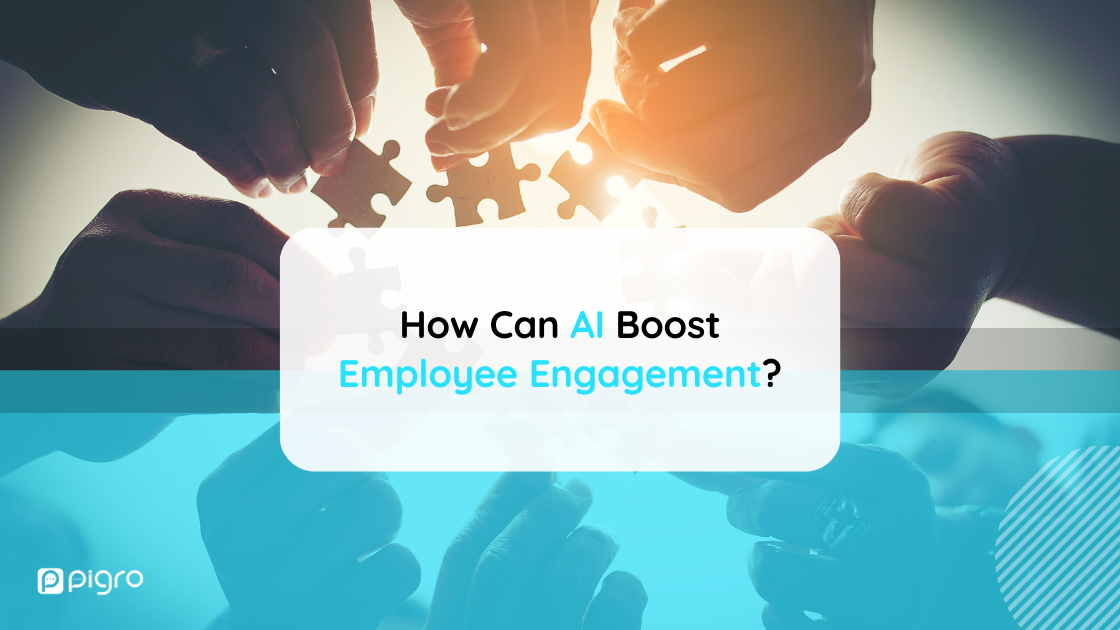Companies wishing to retain their top talent and attract the very best graduates from their field of specialization can no longer ignore the value of continuous, technologically savvy learning.
As found in research by Deloitte, providing employees with opportunities to keep learning and improving is critical for business success. Around 94% of employees say they would stay at a company longer if it invested in their career development.
However, ensuring workers are able to access pertinent, updated information is key if efforts at internal training are to be successful.
Knowledge management software, Pigro, which relies on cutting-edge artificial intelligence, is a vital tool that companies can use to help employees access and share the knowledge they need to shine in their respective roles.
However, it is crucial to prioritize ethics before delving into the realm of AI.
In addition to the benefits of knowledge management software like Pigro, the integration of artificial intelligence (AI) into the learning process raises important ethical considerations. As AI continues to advance and become more prevalent in various industries, it is crucial for companies to prioritize ethical practices in their use of AI technology.
One of the main ethical concerns surrounding AI is the potential for bias. AI systems are designed to learn from data and make decisions based on patterns and algorithms. However, if the data used to train these systems is biased or discriminatory, it can perpetuate and amplify existing biases. Companies must ensure that their AI-powered learning tools are trained on diverse and unbiased data to avoid reinforcing discriminatory practices.
Another ethical consideration is privacy and data security. AI-powered chatbots and knowledge management systems often rely on collecting and analyzing large amounts of data from employees. It is important for companies to establish clear guidelines and protocols for data collection, storage, and usage to protect the privacy and confidentiality of their employees. Transparency and consent should be prioritized to ensure that employees understand how their data is being used and have control over their personal information.
Additionally, companies must consider the potential impact of AI on job displacement. While AI technologies can enhance learning and productivity, they may also automate certain tasks and roles, leading to job losses for some employees. Organizations should proactively plan for the future workforce and provide training and support for employees whose roles may be impacted by AI integration. This includes offering opportunities for reskilling and upskilling to ensure that employees can adapt to changing job requirements.
Lastly, ethical considerations extend to the responsible use and deployment of AI. Companies should be transparent about the limitations of AI-powered learning tools and clearly communicate their purpose and intended outcomes. They should also regularly evaluate and monitor the performance of these tools to ensure they are functioning as intended and not producing unintended consequences.
By addressing these ethical considerations, companies can harness the power of AI in their learning and knowledge management systems while ensuring fairness, privacy, and accountability. It is essential for organizations to approach AI implementation with a strong ethical framework to build trust, foster employee engagement, and create a positive learning environment.
Knowledge is derived from a multitude of origins
Many companies offer dedicated training courses for their employees. Companies like Anthem, BP, and Disney all support the idea of continuous learning.
Some (such as Disney) offer free studies at partner universities, others (like Credit Karma) offer on-site courses and internal training materials. Yet others (like Gartner) entice staff via training programs, a wide array of development opportunities, and e-learning resources.
Many Fortune 500 companies, medium-sized businesses, and small startups are also relying on knowledge management software and on LXPs (which provide access to a wide range of options based on data and artificial intelligence).
The ultimate aim when it comes to providing useful training opportunities is to rely on systems that identify pertinent content, update existing information, and source information from various repositories. Pigro, for instance, imports content from emails, web pages, manuals stored on the Cloud, and more.
Simplifying the search process
Imports content from all available repositories, employees who are honing their knowledge base can find what they are looking for in an instant.
They don’t need to update and reorganize files themselves. Instead, they can use their time efficiently, creating a perfect balance between work tasks and research.
Furthermore, not only imports and automatically updates the company's knowledge base, eliminating the need for employees to sift through lengthy documents for the information they seek, but it also facilitates easy access to valuable insights shared by colleagues.
In this way, the Enterprise Search tool fosters a collaborative learning environment where employees can effectively train and support one another.
Embracing the power of conversational interfaces for employees
The adoption of an employee conversational interface tool is a game-changer in the realm of continuous learning and knowledge management. With the increasing reliance on digital communication, particularly in the post-COVID age, chatbots have become an essential tool for enhancing communication within organizations.
When it comes to employee learning, having a conversational tool as a learning companion can greatly benefit individuals who are delving into new material. These tools are designed to answer questions and provide guidance, enabling employees to access more challenging content with ease.
By integrating chatbots into the learning process, organizations can improve knowledge retention while also helping employees navigate through their chosen modules more effectively.
One of the significant advantages is their ability to facilitate learning on the go. Employees can access pertinent information and interact with the chatbot through their smartphones or tablets, even while commuting to and from work. This flexibility allows for continuous learning opportunities outside of the traditional office environment and empowers employees to make the most of their time.
Moreover, it contributes to a collaborative learning environment by fostering communication and knowledge sharing among employees. They can provide access to valuable insights shared by colleagues, creating a sense of community and support within the organization. This collaborative approach not only enhances the learning experience but also promotes a culture of continuous improvement and growth.
Incorporating chatbots into the learning process aligns with the demand for continuous learning from top-level employees and new recruits. Companies like Disney have recognized the importance of not only offering various learning opportunities but also leveraging AI to personalize content to match the needs and interests of their workforce. The interactive nature of this conversational tool empowers employees to easily find the information they need while learning, creating a dynamic and motivating learning experience.
In conclusion, the adoption of an employee conversational interface tool revolutionizes the way organizations approach continuous learning. By harnessing the power of AI and digital communication, chatbots enhance knowledge retention, facilitate easy access to information, and promote collaboration among employees. With the ever-increasing demand for continuous learning, embracing chatbot technology is a strategic move for companies looking to retain top talent and attract the best graduates in their field.
Read also: How to improve communication in a company to build brand reputation
How to innovate your company Knowledge Management System
Would you like to know more about Pigro and how it works? Don't hesitate to contact us!



